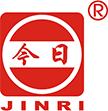How to Prevent Ring Binder Rust?
Ring Binders are essential for organizing documents in offices, schools, and factories. However, over time, exposure to moisture and environmental contaminants can cause the metal rings to rust. Rust not only damages the binder mechanism but can also stain paper and affect the overall appearance of your documents. Proper prevention methods can extend the life of binders and maintain their professional look.
Understanding the Causes of Rust
Rust forms when iron reacts with oxygen and moisture in the air. ring binders often contain metal components such as nickel-plated or chrome-plated steel rings. If these coatings are damaged or exposed to humidity, oxidation can begin. Common causes include:
High humidity or damp storage conditions
Direct contact with liquids or wet hands
Acidic paper or adhesives that trap moisture
Poor-quality plating or uncoated metal parts
Controlling these factors is the first step to keeping your binders rust-free.
Use High-Quality Materials
Choosing high-quality ring binders is the most effective way to prevent rust. Premium binders are made using rust-resistant metals such as nickel-plated steel or stainless steel. These materials have strong corrosion resistance and can withstand long-term exposure to office humidity.
JINRI, a professional supplier of stationery and office organization products, offers binders designed for durability and corrosion protection. Their metal rings are coated to prevent oxidation even in changing climates, making them ideal for schools, government offices, and commercial archives.
Control Humidity and Temperature
Maintaining proper environmental conditions plays a critical role in rust prevention. A relative humidity level below 50% is ideal for preventing oxidation on metal parts. Temperature fluctuations can also cause condensation, which accelerates rust formation.
To create a suitable environment:
Store binders in dry, well-ventilated areas.
Avoid placing them near air conditioners or open windows.
Use silica gel packets or moisture absorbers inside storage cabinets.
These small actions significantly reduce the likelihood of moisture accumulation on binder rings.
Keep Binders Clean and Dry
Dust and oils can trap moisture on the surface of the rings. Regular cleaning removes these contaminants and protects the metal from corrosion. Wipe the rings with a soft, dry cloth every few weeks. If needed, use a mild detergent diluted in water, then dry thoroughly before closing the binder.
Never use harsh chemicals or alcohol-based cleaners, as they may damage protective coatings. For long-term storage, applying a thin layer of anti-rust oil or metal protectant spray can form a barrier against air and moisture.
Avoid Direct Liquid Contact
Even small drops of water can start rusting if left on the ring surface. When using binders in environments prone to spills—such as schools or manufacturing areas—keep liquids at a distance. Always ensure hands are dry before handling documents.
If binders do get wet:
Wipe them immediately with a soft cloth.
Open the rings to allow air circulation.
Leave them to dry completely before returning them to storage.
This quick response can prevent the early stages of corrosion and extend binder lifespan.
Choose Proper Storage Methods
Incorrect stacking or tight storage can cause scratches that expose the underlying metal. Store binders upright on shelves rather than stacking them flat. Use plastic or wooden shelving instead of metal, which may transfer rust stains through contact.
To further prevent rust:
Avoid overcrowding shelves to allow airflow between binders.
Use plastic sleeves or covers for long-term document storage.
Rotate binders occasionally to ensure even exposure to air.
A well-organized filing system not only looks professional but also minimizes wear and tear on materials.
Inspect Regularly and Replace Damaged Parts
Routine inspection helps catch corrosion before it spreads. Check ring mechanisms, rivets, and hinges every few months. If light rust appears, gently remove it using fine sandpaper or a rust eraser, then apply protective oil.
Severely corroded rings should be replaced immediately to prevent stains or mechanical failure. Some professional suppliers, including JINRI, offer replaceable metal mechanisms that allow users to extend the life of their binders sustainably.
Table: Rust Prevention Summary
| Prevention Method | Key Action | Benefit |
|---|---|---|
| High-quality materials | Use nickel-plated or stainless steel rings | Long-term corrosion resistance |
| Humidity control | Maintain humidity below 50% | Prevents oxidation |
| Cleaning | Wipe rings regularly and dry completely | Removes moisture and dust |
| Liquid avoidance | Keep binders away from spills | Reduces risk of water damage |
| Proper storage | Store upright with ventilation | Avoids scratches and condensation |
| Regular inspection | Replace rusted rings | Maintains document safety |
Conclusion
Preventing ring binder rust is a combination of quality materials, proper care, and good storage habits. By keeping moisture under control and maintaining the cleanliness of the metal rings, users can extend the functional life of their binders and preserve the integrity of their documents.
For organizations seeking durable, rust-resistant binders, JINRI provides a comprehensive range of office stationery products designed for longevity and reliability. Their commitment to quality ensures that every binder maintains its performance and appearance even under frequent use.
Proper rust prevention not only protects your investment but also reflects professionalism in every aspect of document management.



